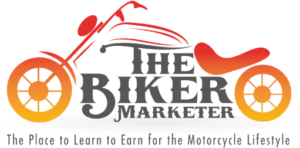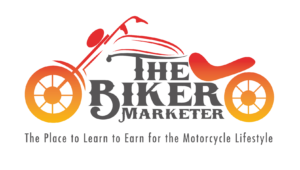Freelance Writing and Blogging
Finding Your Niche
When I first hit the road, I realized how important it was to carve out a niche in freelance writing. I mean, you can literally write about anything! But finding what sets you apart is key. Think about what you love, whether that’s travel, motorcycles, or the art of the open road itself. You have experiences, so harnessing that makes it easier to write authentically.
It’s also useful to explore what’s trending in the biking community. For example, you could cover bike maintenance tips or travel logs about your journeys. When I started focusing on my passions, my writing flowed naturally and attracted clients who valued my unique perspective.
Lastly, don’t underestimate the power of social media! Use platforms like Instagram or Twitter to showcase your writing and connect with fellow bikers. You’d be surprised how much interest you can generate by sharing snapshots of your rides alongside your written pieces.
Building a Portfolio
Next up is putting together a solid portfolio! When I began, I didn’t have much to show, so I started by creating a blog. Writing regularly not only helped me hone my craft but also gave potential clients something to look at. So, throw up a simple website where you can showcase your best work.
Another tip? Offer to write guest posts for other biking blogs. This not only builds your portfolio but also helps you network in the community. Collaboration is everything! I’ve gained so many clients through relationships I built this way.
Also, keep it updated! It’s not just enough to create a portfolio; you need to keep it fresh. I regularly revisit mine to ensure it reflects my best and most current work. This shows potential clients that I’m active and always improving.
Networking and Finding Clients
Ah, the magic of networking! I’ve learned that it’s vital to put yourself out there. Joining writing groups focused on biking or freelancing can be a goldmine for finding gigs. When I connected with other writers, I learned about job opportunities that I would’ve otherwise missed.
Platforms like LinkedIn are also great for connecting with potential clients. Sharing your biking adventures or writing pieces can catch the eye of someone looking for a freelance writer. It happened to me when a travel company reached out after seeing my post about a trip I took. You never know who’s watching!
Don’t shy away from asking for referrals from happy clients either. If you’ve done a good job, the chances are they’ll be more than eager to share your info with others. Spread the word, and don’t be afraid to toot your own horn.
Remote Customer Support
Understanding the Role
You might be wondering how customer support fits into the biking lifestyle, but let me tell you, it’s super flexible! Companies are constantly looking for reliable people to assist their customers, and guess what? You can do this from your laptop while sipping coffee at a roadside café.
These roles usually require you to help customers troubleshoot issues, provide information about products, or assist with purchases. That means you’ll need good communication skills and a soothing manner. But don’t worry if you’re new; most companies provide training to help you get started!
What’s great about working in customer support is that you often get to choose your hours. I’ve found many gigs that allow you to work at times that suit your travels. It makes my life on the road so much easier.
Finding Remote Support Roles
Now, the big question: where do you find these roles? Start by checking job boards like We Work Remotely, Remote.co, or even traditional sites like Indeed or Glassdoor. These platforms regularly list remote customer support positions.
Another solid strategy is reaching out to companies you’re interested in. Draft a nice email, introduce yourself, and express your interest in working with them. Sometimes, you might even discover that they’re looking to fill a position that hasn’t been posted yet!
Networking can also help significantly here. Share your interests on social media and let folks know you’re on the hunt for remote support roles. You’d be amazed at the leads that can pop up just through casual conversations!
Tools for Success
When it comes to providing support, having the right tools is crucial. I’ve used various chat systems and help desk software during my customer support gigs, and learning how to navigate them can make a world of difference. It streamlines the process of assisting customers.
Also, don’t forget about a reliable internet connection! That’s a must-have when you’re working remotely. I’ve invested in a portable Wi-Fi hotspot so that I can stay connected no matter where my bike takes me.
And last but definitely not least, practice active listening. It’s a skill that will make your job so much easier and your customers feel valued. Be empathetic, and try to understand their problems fully. It can truly elevate the customer experience and keep you in demand.
Virtual Assistance
What Virtual Assistants Do
As a virtual assistant (VA), your job can vary hugely depending on the needs of your clients. I’ve tackled various tasks, from managing emails and setting up calendars to handling social media accounts. The flexibility is a huge draw and allows me to manage work while exploring new places.
Being organized is key! Juggling multiple tasks for different clients can get tricky if you’re not on top of your game. I swear by a good planner and digital tools like Trello and Asana to keep everything running smoothly.
Another perk is that you can pick your clients, which means you can work with those whose missions resonate with you. I’ve had a blast working with biking companies and travel bloggers, making my work feel more like play!

https://TheBikerMarketer.com/Info
Setting Up as a Virtual Assistant
So you wanna be a VA? The first step is deciding on the services you want to offer. Get specific! Are you looking to help with social media, email management, or maybe even bookkeeping? Once you decide, you can market yourself accordingly.
Creating an online presence is a must! I set up profiles on platforms like Fiverr and Upwork, and I even have a simple website showcasing my skills. The more visible you are, the higher your chances of landing clients.
Networking is also essential here. Connect with fellow VAs or join specialized Facebook groups. There is a wealth of information shared among members, and sometimes even job leads crop up!
Essential Skills for Success
Though anyone can become a VA, there are some key skills that will set you apart. Communication, organization, and time management are top of the list. I strongly believe having smooth communication is vital to preventing misunderstandings.
Tech savvy is another essential trait, as many clients will expect you to know your way around various tools. Don’t fret if you aren’t a pro just yet; take time to learn and practice, and in no time, you’ll be whizzing through tasks with ease!
Ultimately, being proactive and adaptive will help you thrive. Every client has different expectations, and how you handle those adjustments can make or break your success as a virtual assistant.
Online Tutoring and Coaching
Identifying Your Strengths
If you enjoy teaching others, online tutoring or coaching might be a perfect fit! Start by identifying the subjects or skills you’re passionate about and offer to share your knowledge. For example, I got back into my love for math and started helping high schoolers online, which has been incredibly rewarding.
Maybe you’re great at yoga, or have a background in business? Whatever it is, turn that into a tutoring opportunity. It’s all about sharing what you know with others and helping them grow in an area you love.
Also, think about the platforms where you want to set up your practice. Websites like Tutor.com or even creating your own course via Teachable can provide a solid base to start. I found my groove in a few niche communities, which helped in attracting students who needed my skills!
Platforms for Teaching
When it comes to getting started in online tutoring, selecting the right platform is super important. Platforms such as VIPKid or Cambly are great for those looking to teach languages or other subjects online. On the other hand, if you’re aiming to coach in specific areas, consider using Skype or Zoom for one-on-one video sessions.
I chose to use Zoom for my math tutoring as it allowed me to break down complex problems interactively. Plus, the screen sharing feature made illustrating my points much easier!
Don’t overlook social media either; creating educational content on platforms like Instagram or TikTok can help not only establish your expertise but also attract potential students. I’ve learned that people love approachable and shareable content!
Marketing Yourself as a Tutor or Coach
Once you’ve set up your teaching practice, you gotta market yourself. A solid social media presence can go a long way in showcasing your services. Don’t be shy about sharing testimonials from past students too — it builds credibility!
Consider offering free introductory sessions to entice new students. Back when I started, I offered a free first session, which led to a steady stream of clients thereafter. People love having a taste before they commit to paying—you get that!
Networking in educational circles can also help retrieve new clients. Connect with teachers or admins who might be interested in your services and get the word out in local forums or community groups. You’ll find that teaching opportunities can come from unexpected sources!
Conclusion
Living the life of a digital nomad while biking around the world is not only possible; it’s incredibly rewarding! Whether you choose freelance writing, customer support, virtual assistance, or online tutoring, there are countless opportunities to sustain a lifestyle filled with adventure and flexibility. So, gear up, hit the road, and find a job that fuels your passions. You got this!
FAQs
1. Can I really work remotely while traveling on my motorcycle?
Absolutely! Many jobs are perfectly suited for remote work. With a reliable internet connection, you can do a variety of jobs like writing, customer support, virtual assistance, and more.
2. What equipment will I need to work on the go?
You’ll need a laptop or tablet, a portable Wi-Fi hotspot, headphones for calls, and ideally some kind of backup power source like a portable charger. Staying organized is key!
3. How do I start finding online jobs as a digital nomad?
Start by creating an impressive online portfolio or profiles on freelance platforms. Networking within communities you’re interested in can be a big help too.
4. Is it possible to find clients while biking around?
Totally! Networking on social media or through motorcycle and travel communities can lead to job opportunities while you’re on the road.
5. What are the best jobs for someone who loves biking and traveling?
Freelance writing, online tutoring, customer support, virtual assistance, and coaching are fantastic options. Find something that resonates with you, and go for it!

https://TheBikerMrketer.com/Info

